
Performance of Persistence: A March for Gender Justice in Climate Justice
Despite the midday showers, more than three hundred people led by indigenous women joined the women’s march on 1 October 2009, heading to the United Nations Economic and Social Commission for Asia and the Pacific (UNESCAP) building in Bangkok, Thailand.
Chanting “No Climate Justice without Gender Justice”, the participants, mostly coming from Armenia, Bangladesh, Bur ma, Cambodia, Indonesia, India, Malaysia, Pakistan, Philippines and Thailand stressed that women are among the hardest hit by climate change despite their minute carbon footprint. Moreover, they demanded the meaningful engagement of women in the climate talks.
One of these women was Aleta Kornika Baun, one of the scores of Indonesian indigenous women affected by the lucrative mining industries. “Mining cleared the forests of trees and now causes periodic erosions. Today, we walk for at least two kilometers just to fetch water. If we allow mining, the number of women victims will keep on rising,” she lamented.
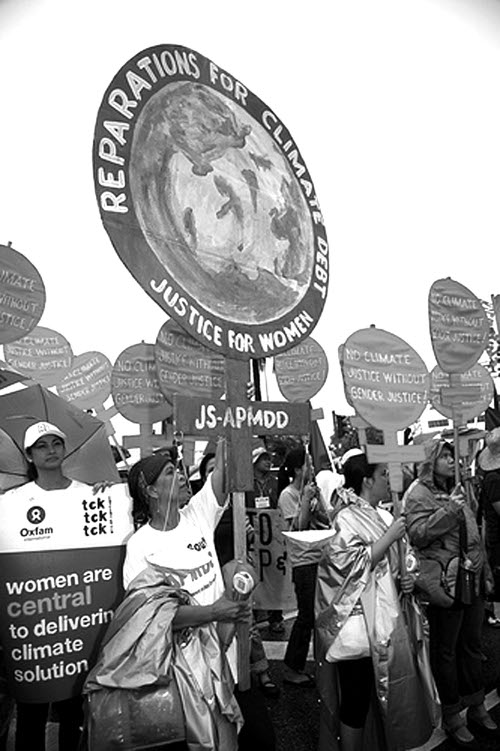
Another was Elvie Baladad of the Pambansang Koalisyon ng Kababaihan sa Kanayunan (PKKK) or the Philippine National Rural Women Coalition. She owns an orchard of some 300 mango trees that are expected to yield about 6,000 kilos. But in her last harvest, she only managed to collect 300 kilos.
“I’m still paying my debt, with the devastation brought about by insect infestation, which in turn is brought about by climate change. We have a crazy weather, as crazy as those inside who would not want to reduce their carbon emissions and who are responsible for messing up our climate. I blame the countries especially the United States (US). In pursuit of development, it has trampled those who have less in life,” she expressed.
Northern women likewise joined the women’s march. US-based Felicia Marie Davis, who came at her own expense, hoped to learn from the politics and energy of Asian women who have strongly articulated the links between gender and climate change.
As she explained, “I came on my own resources to see and hear first hand how Asian women represent gender in climate change discussions, showing that gender and climate are connected and connected globally. I can connect what happened in the Philippines to hurricane Katrina where more women died. Women from the developing worlds are truly taking the leadership in this issue especially in terms of equity.”
During the march, some women participants periodically danced to the drumbeats, with their red umbrellas, batik banners and placards shaped like the Venus sign. Such fusion of energies, at once serious yet creative, drew the attention of passersby. Just before the march, the participants were thrilled to see four motor boats of SEAFish for Justice plying the Chao Phraya river and heading towards the park beside the Phra Sumen Park.
At the end, the women reiterated their call for accountability particularly among developed nations as well as women’s meaningful participation in both formal and informal processes.
As Baladad asserted, “We call for reparations that are free of conditionalities. They owe it to us, our children and the next generation.” Farjana Akter of Voice of Bangladesh added, “Women must be present in decision-making on adaptation programmes.” Finally Baun remarked, “Women and men must work together. We need to learn from our traditions. We have to think of ourselves as friends of the environment.”
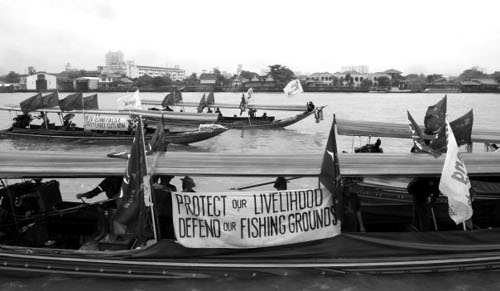
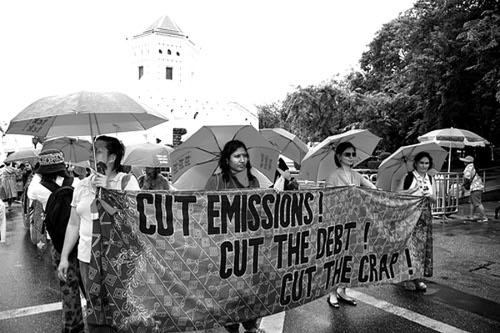
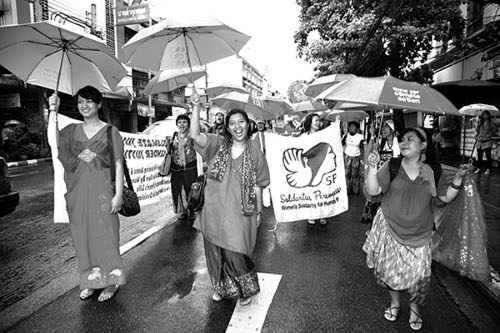
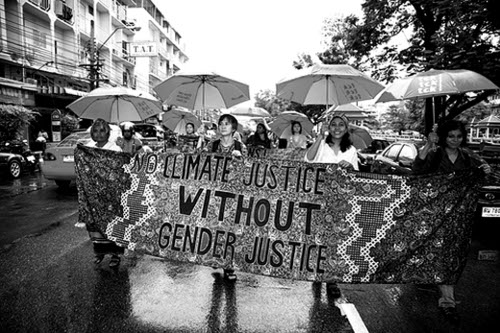





 The
The 
 Isis Resource Center holds one of the largest feminist collections of materials in the Global South. With 40 years of publication experience, Isis holds a vast collection.
Isis Resource Center holds one of the largest feminist collections of materials in the Global South. With 40 years of publication experience, Isis holds a vast collection.